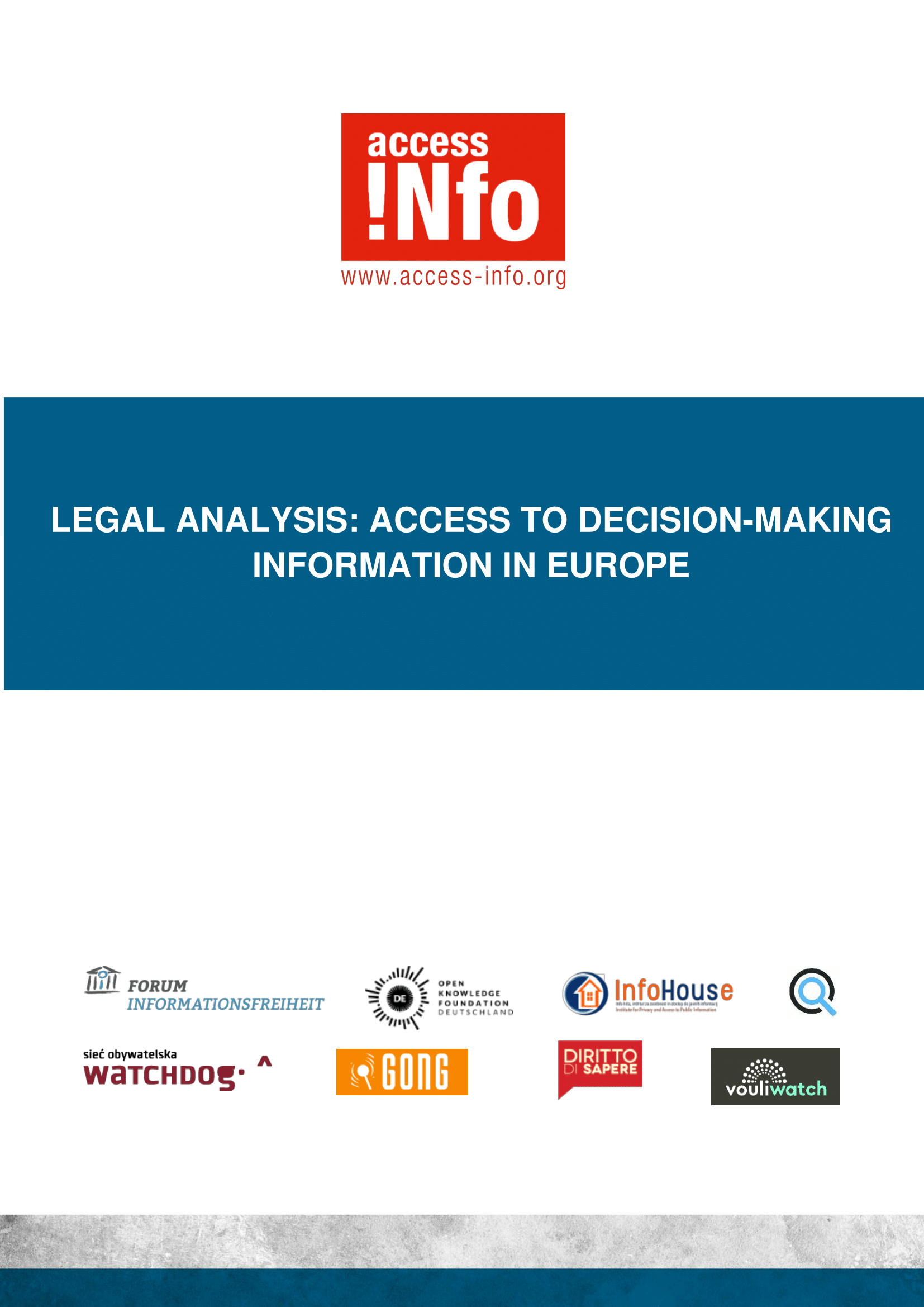This Legal Analysis, based on a study of the access to information laws in eleven (11) countries and that of the European Union, evaluates the extent to which these laws provide transparency of the documents needed to follow and participate in decision making by public bodies.
A valuable resource for academics and activists alike, it has sections on the strength and scope of Europe’s access to information laws, on requirements to create records, and on proactive publication obligations as they relate to documents needed to track decision making.
With a focus on key classes of information such as minutes of meetings and documents submitted by lobbyists, the Analysis looks at whether these documents fall under the scope of access to information laws and examines the exceptions that might apply to accessing this information, such as protection of decision making or privacy.
The main findings of the report are:
» Europe’s Access to Information laws permit requests for decision-making information
» Decision Making is an exception to the right of access to information in all the jurisdictions surveyed except Poland, but not all of these regimes have a harm and/or public interest test for this exception.
» All jurisdictions studied have an exception to protect the privacy of individuals but harm and/or public interest tests are not always mandatory when applying this exception.
» There is no obligation to record minutes of meetings held as part of decision-making processes.
» There are either weak or no requirements for proactive publication of information with regards to minutes of meetings and documents submitted by lobbyists.
» Another significant finding of this study was that there is no requirement to make public proactively the core documentation related to decision-making processes. In particular, we found that no country has clear requirements to publish proactively minutes of meetings related to particular policies or decision-making processes.
The specific legal recommendations are that each country should ensure that:
» All public bodies which participate in decision-making processes fall under the scope of the national access to information law.
» Harm and public interest tests exist for all exceptions to access to information, including decision making and privacy.
» There is an obligation to record minutes of meetings held as part of decision-making processes.
» There be a requirement to publish proactively information about decision-making processes, such as minutes of meetings and documents submitted by lobbyists.
The report is published on the DMT Legal Analysis section of the Access Info website, and can be downloaded here: ![]()
![]()

